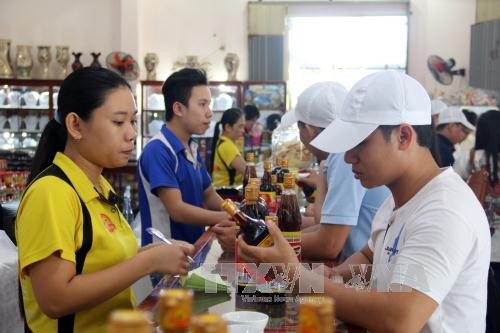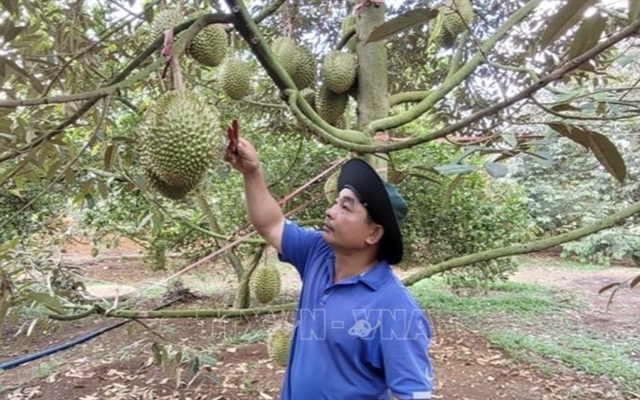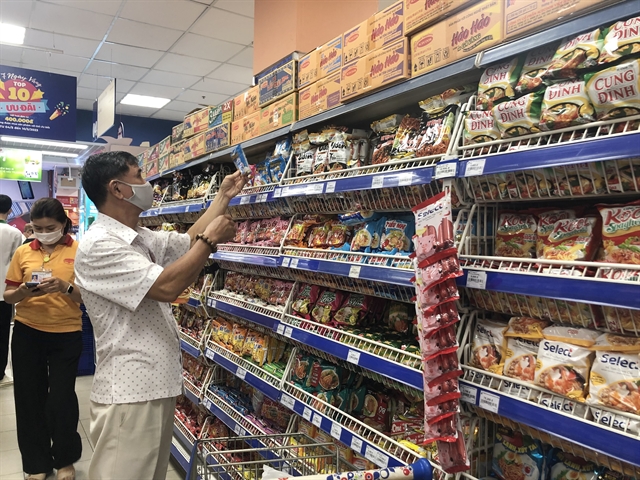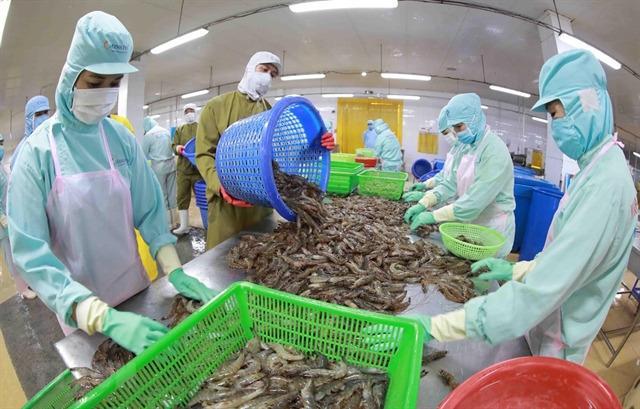

Việt Nam Standard and Consumers Association (VINASTAS) recently issued an official statement, apologising to consumers, fish sauce producers, distributors and management agencies over its now-discredited misleading reports on the toxicity in fish sauce.
 |
| Fish sauce market in Phú Quốc Island, Kiên Giang Province, widely regarded as having the best fish sauce producers - was rejuvenated, after Ministry of Health discredited VINASTAS’ reports and announced that all fish sauce samples were safe. — VNA/VNS Photo Lê Huy Hải |
HÀ NỘI – Việt Nam Standard and Consumers Association (VINASTAS) has issued an official statement, apologising to consumers, fish sauce producers, distributors and management agencies over its now-discredited misleading reports on the toxicity in fish sauce.
On October 17, VINASTAS announced the results of a survey it conducted nationwide, however, the survey team had "not exercised reasonable prudence” and there was confusion on its part over the terminology of ‘arsenic’ as defined in the Việt Nam Encyclopedia, according to an official release on the organisation’s website.
On behalf of the survey team, VINSTAS in its statement also apologised for the consequences of its false reports, which had adversely affected consumers and many traditional fish sauce makers and distributors.
It also pledged to hold offending individuals accountable and review its professional code of conduct to avoid such mistakes in the future, the statement read.
In Vietnamese, arsenic and arsenic trioxide (As2O3) are frequently erroneously called by the same name – "thạch tín" in Vietnamese – which should be used to refer to the inorganic latter only.
Inorganic arsenic is highly toxic while organic arsenic, which is present naturally in traditional fish sauce, is safe for human consumption, the Ministry of Agriculture and Rural Development and the Ministry of Health stated.
An investigation by the Ministry of Industry and Trade concluded that VINASTAS’ survey was sponsored by “external enterprises”, hence its independence was compromised. The reliability of the reports was also questioned for its careless and inconsistent methodology and execution.
The propagation of false information is an offence under Food Safety Law, which prohibits the “publication of misleading information on food safety which caused public anxiety and damage to producers and businesses” (Term 12, Article 5).
On October 18, the association published on its website a story titled “Nearly 85 per cent of fish sauce samples of 88 enterprises fail to meet standards”. The story contained misleading information, according to which 95.65 per cent of traditional fish sauce samples contained arsenic that was higher than permitted, simultaneously implying that industrial fish sauces were safe.
Last week, 50 newspapers and media outlets were slapped with a total fine of VNĐ1 billion (US$44,400) for running the survey and were ordered to publish corrections. — VNS









